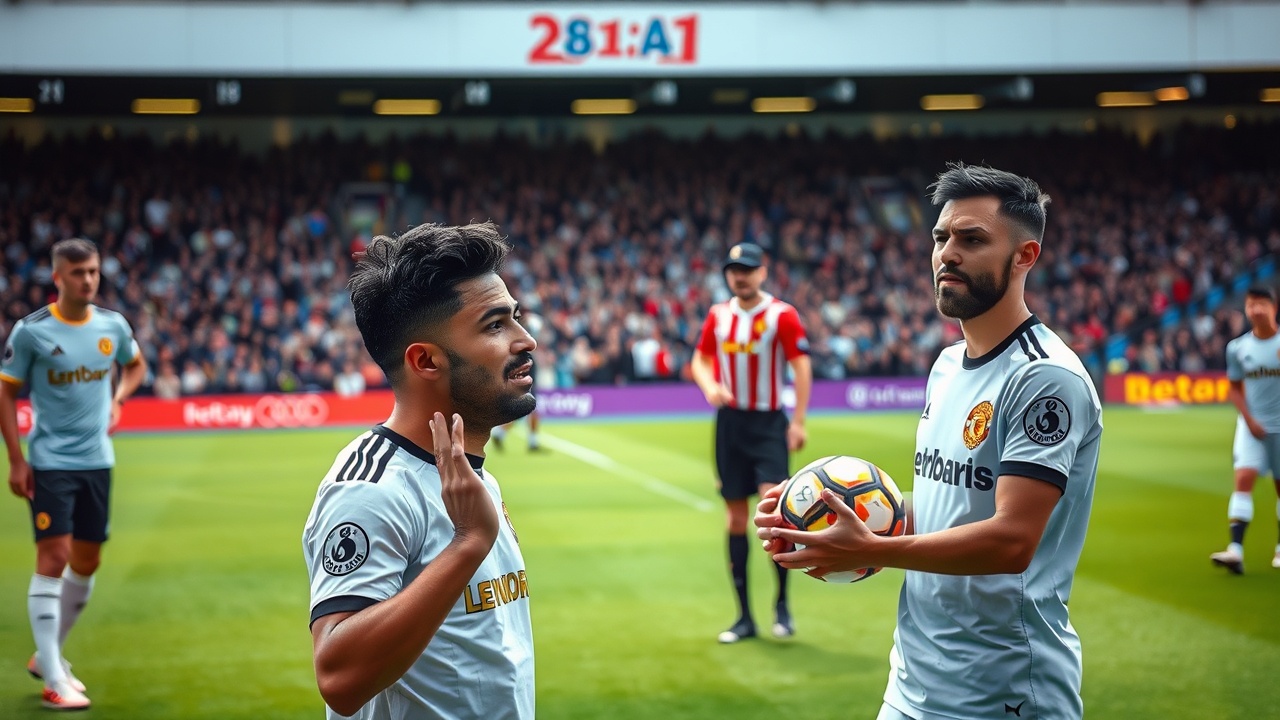VAR Implementation in the Premier League
The implementation of the Video Assistant Referee (VAR) in the Premier League remains a focal point of debate as the football season progresses. Each week, we analyze key incidents involving VAR, shedding light on both its operational protocols and the governing Laws of the Game. This week’s review focuses on several controversial moments, including Chelsea goalkeeper Robert Sánchez‘s dismissal against Manchester United, a contentious goal from Bruno Fernandes, and a potential penalty shout for Newcastle United against AFC Bournemouth.
Key Incidents Reviewed
In the opening minutes of the match between Manchester United and Chelsea, Bruno Fernandes successfully converted a 14th-minute goal following a header from Patrick Dorgu. Some questioned the legitimacy of the goal, raising concerns about possible offside involving Fernandes and another player, Benjamin Sesko. Upon review, the goal was allowed to stand. VAR clarified that Fernandes was indeed onside, a decision which sparked discussion due to its similarity to a previous offside call when Burnley’s Lyle Foster thought he had scored against Manchester United in an earlier match. Critics found both scenarios strikingly comparable, yet with opposite outcomes.
While Fernandes was deemed onside, the situation surrounding his teammate Sesko was also pivotal. Although he was in an offside position, VAR determined his presence did not interfere with play, as he did not actively challenge for the ball or obstruct Chelsea’s Trevoh Chalobah.
Controversial Decisions
On to the incident involving Sánchez: he received a red card after taking down Bryan Mbeumo, a decision reflective of denying a clear goal-scoring opportunity (DOGSO). Referee Peter Bankes, after consultation, confirmed the dismissal without controversy; he indicated that without interference from Sánchez, Mbeumo would likely have easily scored. There was, however, some debate regarding the nature of Sánchez’s challenge, which just barely made contact with the ball before the dismissal. Discussions emerged around whether VAR should prompt the referee to review the monitor in such instances, particularly if a more serious foul was overlooked.
An additional talking point was a penalty appeal for Newcastle’s João Pedro, who fell under a challenge from Noussair Mazraoui but was denied by referee Bankes and VAR. The ruling was upheld as Mazraoui had touched the ball before the contact—a key detail in determining fairness in play.
Incidents continued to unfold, including a yellow card issued to Marc Cucurella for a tackle that some argued could have warranted a red card. After a VAR review, the initial yellow was maintained, indicating that the challenge, while significant, did not merit further action.
Later, a potential penalty for AFC Bournemouth was also dismissed after Dan Burn inadvertently handled the ball off the arm of Sandro Tonali. The VAR assessed that the handball was unintentional, a heavy consideration given the league’s more lenient stance on handball offenses this season.
Ongoing Scrutiny of VAR
Tensions persisted into a later match when a Fulham goal by Rodrigo Muniz was overturned following an incident where Brentford’s Nathan Collins was struck in the face by Muniz’s arm, impacting Collins’ ability to contest the ball fairly.
In another match, Sunderland’s Reinildo Mandava received a red card for violent conduct against Matty Cash, a situation reviewed and upheld by VAR. This echoed a similar incident from 2019 involving Tottenham’s Heung-Min Son, highlighting the ongoing scrutiny surrounding violent conduct in football.
Conclusion
Overall, the latest VAR decisions encapsulate a blend of clear-cut rulings and those that continue to challenge the understanding and acceptance of VAR’s influence on the game, demonstrating the complexities of officiating at the highest levels of football.




